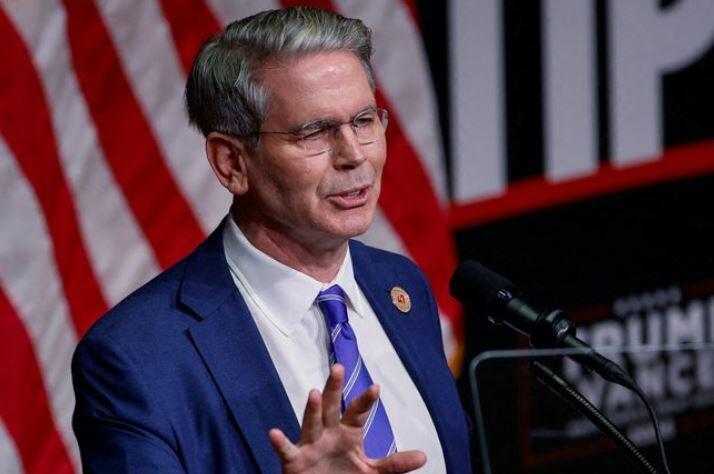Bessent Calls For ‘Reforms’ Among ‘Bretton Woods Institutions’ To Rein In Global Trade Imbalances
Days after Scott Bessent dazzled JP Morgan with closed-door comments (aka not Main Street) that the tariff standoff with China is unsustainable, the US Treasury Secretary is set to deliver comments on Wednesday at the IIF Global Outlook Forum regarding the state of the global financial system as the Trump administration seeks to tamp down rhetoric over China.
According to a copy of Bessent’s prepared remarks, he is set to tell the IIF that “America First does not mean America Alone,” and that the International Monetary Fund must prioritize economic and financial sustainability. He is calling for IMF and World Bank reforms after “mission creep,” i.e. non-economic goals such as climate change and social justice, but that the Trump administration wants to work with them.
“Going forward, the Trump Administration will leverage U.S. leadership and influence at these institutions and push them to accomplish their important mandates,” Bessent said, adding “The United States will also demand that the management and staff of these institutions be accountable for demonstrating real progress.”
Bessent – who blamed persistent U.S. trade deficits on foreign policy decisions that promote excess saving and low wages abroad, added that “The architects of Bretton Woods recognized that a global economy required global coordination,” and called for “key reforms to ensure the Bretton Woods institutions are serving their stakeholders—not the other way around.”
He also encouraged “security-aligned trade,” suggesting that U.S. security partnerships should influence economic alignment – a strategic counter to China’s Belt and Road.
China Rebalancing
Bessent also said that China “is in need of rebalancing.”
“Recent data shows the Chinese economy tilting even further away from consumption toward manufacturing. China’s economic system, with growth driven by manufacturing exports, will continue to create even more serious imbalances with its trading partners if the status quo is allowed to continue.
China’s current economic model is built on exporting its way out of its economic troubles. It’s an unsustainable model that is not only harming China but the entire world.
China needs to change. The country knows it needs to change. Everyone knows it needs to change. And we want to help it change—because we need rebalancing too.“
According to an anonymously sourced (of course) report by the WSJ minutes before Bessent’s speech (and which was immediately denied), the Trump administration “is considering slashing its steep tariffs on Chinese imports—in some cases by more than half—in a bid to de-escalate tensions with Beijing.”
President Trump hasn’t made a final determination, the people said, adding that the discussions remain fluid and several options are on the table.
One senior White House official said the China tariffs were likely to come down to between roughly 50% and 65%. The administration is also considering a tiered approach similar to the one proposed by the House committee on China late last year: 35% levies for items the U.S. deems not a threat to national security, and at least 100% for items deemed as strategic to America’s interest, some of the people said. The bill proposed phasing in those levies over five years. -WSJ
Watch Treasury Secretary Bessent speak here:
Bessent’s comments also come after President Donald Trump softened his tone on the unfolding trade war between the world’s two largest economies – to which China’s foreign ministry spokesman, Guo Jiakun replied “our doors are wide open.”
According to Tuesday comments by Trump, “very high” tariffs on Chinese imports will “come down substantially, but it won’t be zero.”
“I think we’re going to live together very happily and ideally work together, so I think it’s going to work out very well,” Trump told reporters at the White House.
Trump notably excluded China from a pause on “reciprocal” tariffs that were extended to other trading partners in order to allow them time to negotiate – blaming China’s retaliatory actions for its exclusion.
The China tariffs include a 125% reciprocal tariff on top of Trump’s original 20% tariff related to the fentanyl trade. Combined with pre-existing Section 301 tariffs, some Chinese goods face levies as high as 245%.

